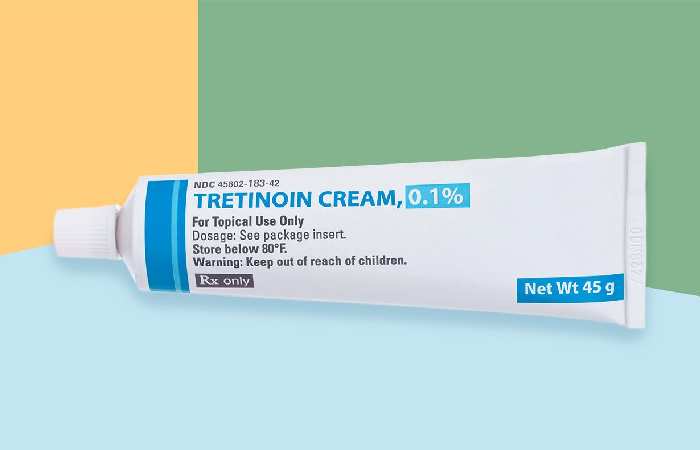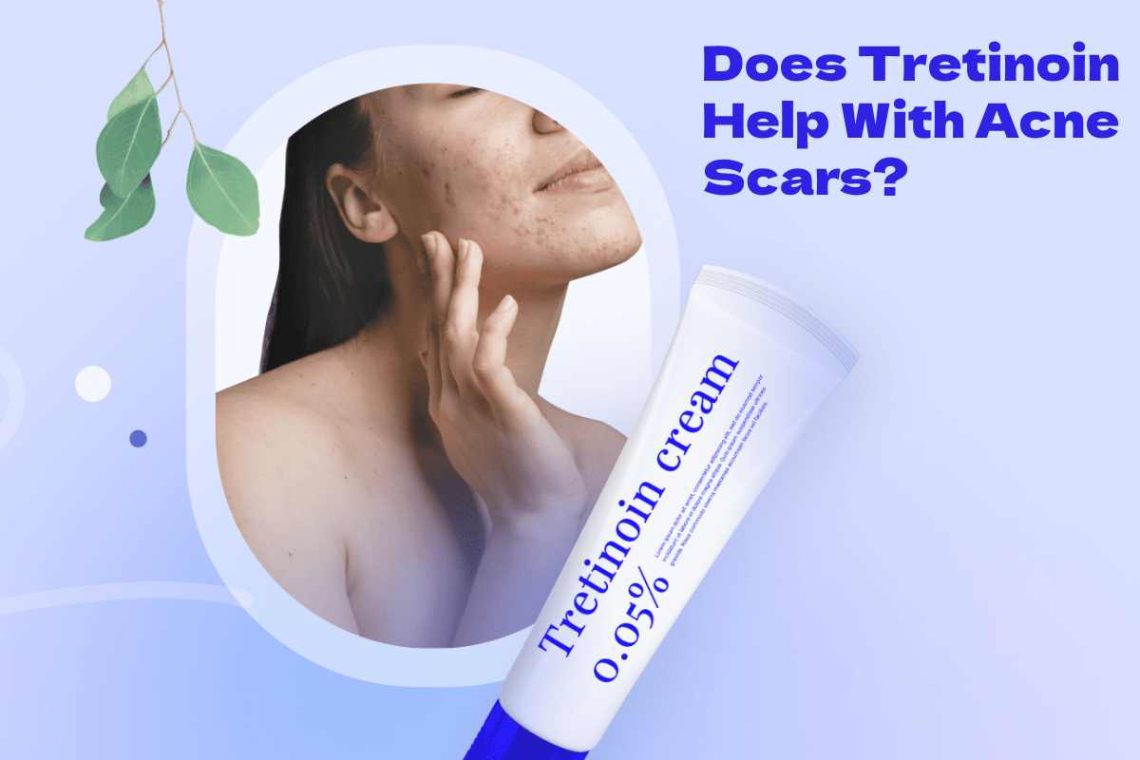Does tretinoin help with acne scars? Are you searching for the answer? Here it is:
Tretinoin is a broadly used prescription retinoid and one of the most incredible skin medications for acne and anti-aging. It also helps improve acne scars, particularly when new or relatively superficial.
Scars caused by acne
Tretinoin is very effective for atrophic scars as it stimulates collagen creation and advances skin cell reestablishment, which can gradually improve the appearance of these scars. It can help relax the skin and relieve some depression over time. However, it may not wipe out profound or atrophic severe scars, and extra medicines, for example, laser treatment or dermal fillers, might be essential for additional significant improvements.
What is Tretinoin?

Tretinoin is a vitamin A subsidiary usually used in skin-healthy products and medicines. It advances cell renewal and stimulates collagen production, which can help reduce the presence of skin acne scars.
It works by growing skin cell turnover and advancing collagen production, which can eventually help fade the appearance of scars.
Benefits of retinoids
- Anti-inflammatory effects
- Stimulation of collagen production
- Cellular renewal
- Normalization of keratinization
- Reduction in pore size
- Reduction of hyperpigmentation
What is tretinoin used for?
- Acne Treatment
- Treatment for Mild to Moderate Acne
- Prevention of New Acne Lesions
- Promotion of Healing for Existing Acne
- Hyperpigmentation
- Treatment for Melasma and Hyperpigmentation
- Fading Dark Spots
- Evening Out Skin Tone
- Tretinoin for Spots
- Treatment for Blemishes
- Acne Scars Treatment
- Stretch Mark Treatment
- Rough Skin Texture
- Improving Skin Texture
- Stimulation of New Skin Cell Growth
- Stretch Marks
- Wrinkles and Anti-Aging
- Treatment for Wrinkles and Aging
- Stimulation of Collagen Production
- Improvement of Skin Elasticity
- Side effects of retinoids
- Dryness
- Redness of the skin
- Skin irritation
- Burning sensation
- Peeling
- Increased sensitivity to the sun
How Does Tretinoin Help With Acne Scars on the Skin?
Promotes collagen production
It stimulates the production of collagen, a protein that assists in maintaining the structure and elasticity of the skin. Increased collagen production can occur gradually on the surface, and the presence of skin inflammation scars makes them less observable.
Improves skin cell renewal
Tretinoin helps exfoliate the peripheral layer of the skin, hopefully removing dead cells and developing new, healthier skin cells. Smoothing the skin’s surface can help lessen the permeability of skin inflammation scars.
Fades hyperpigmentation
Tretinoin can also help blur post-provocative hyperpigmentation, which frequently occurs with skin inflammation scars. Post-fiery hyperpigmentation is the obscuring of the skin at the site of past skin breakout sores. Tretinoin might advance an all-around even complexion.
Does tretinoin help remove dark spots?
Yes, tretinoin can help with dark spots and scars on the face, mainly if those are skin inflammation-related and generally new. It is critical to emphasize utilizing sunscreen during treatment and consider tretinoin’s unfriendly impacts and contraindications.
Tretinoin can successfully treat skin flaws that obscure the skin after aggravation or injury, like skin such as acne lesions. Tretinoin advances skin cell renewal and reduces the production and transfer of melanin to skin cells, which contributes to the fading of hyperpigmentation. It may also help fade pigmentation and create a more even skin tone.
Types of creams with retinoids
- Retinol
- Tretinoin
- Adapalene
- Tazarotene
- Trifarotene
- Isotretinoin
- Acitretin
Who can’t use Tretinoin?
- Pregnant or breastfeeding women
- People with eczema or dehydrated skin
- People undergoing cosmetic procedures
- People with sunburns or susceptible skin
- People allergic to retinoids
- Children under 12 years of age
Conclusion
Tretinoin takes time to produce visible results when it comes to reducing the appearance of scars and dark spots, and it may take several months of consistent use to see improvements.
Additionally, tretinoin cannot be used during pregnancy, lactation, or cases of known hypersensitivity. Adverse effects include skin dryness, irritation, and increased sensitivity to the sun. Caution is advised, along with the usage of sunscreen, and it is recommended to avoid applying it to areas with burns or severe irritation.
Individual responses to tretinoin may vary, and not all scars will respond equally.
FAQs – Does Tretinoin Help With Acne Scars
Which retinoid cream is best for anti-aging?
- Tretinoin
- Tazarotene
What are retinoids used for?
- Anti-aging
- Acne
- Psoriasis
- Hyperpigmentation
- Keratosis pilaris
Which topical retinoid is best for acne?
- Tretinoin
- Adapalene
- Tazarotene
- Combined products
Which retinoid is best for rosacea?
- Adapalene
- Tretinoin

